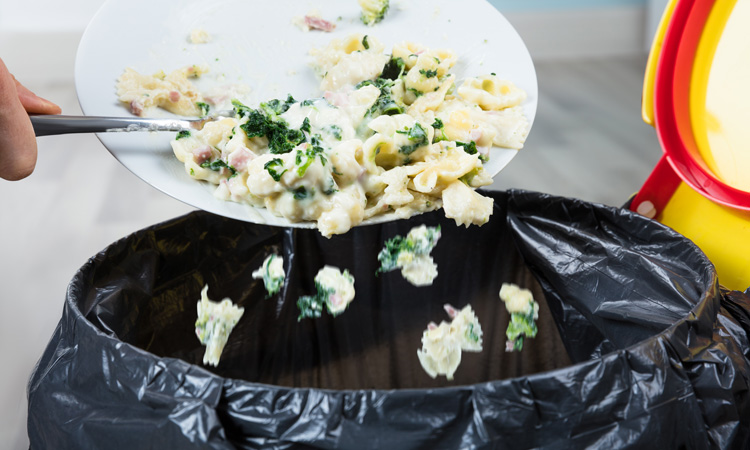UK personal food waste fell seven percent in three years, says report
- Like
- Digg
- Del
- Tumblr
- VKontakte
- Buffer
- Love This
- Odnoklassniki
- Meneame
- Blogger
- Amazon
- Yahoo Mail
- Gmail
- AOL
- Newsvine
- HackerNews
- Evernote
- MySpace
- Mail.ru
- Viadeo
- Line
- Comments
- Yummly
- SMS
- Viber
- Telegram
- Subscribe
- Skype
- Facebook Messenger
- Kakao
- LiveJournal
- Yammer
- Edgar
- Fintel
- Mix
- Instapaper
- Copy Link
Posted: 27 January 2020 | Sam Mehmet (New Food) | No comments yet
A report from WRAP has revealed that between 2015 and 2018 food waste dropped by seven percent per person in the UK, but the research charity has warned there is still work to be done.


The UK is making significant steps in reducing its food waste, with total food waste levels falling by 480,000 tonnes between 2015 and 2018 – a seven percent reduction per person, according to the latest report from the sustainability not-for-profit, Waste and Resources Action Programme (WRAP).
The Courtauld Commitment 2025 Milestone Progress Report reveals that households and businesses are now tackling the problem at an accelerated rate, with a greater rate of progress from 2015 to 2018 than over the preceding five years.
Looking back to when WRAP began work on household food waste, a total of 1.4 million tonnes of food has been saved from going to waste each year in homes compared to 2007 levels.
While good progress, there is still much more to do, WRAP warned. The report shows that UK households still waste 4.5 million tonnes of food that could have been eaten, worth £14 billion every year (£700 for an average family with children).
A reduction of four percent in the supply chain also shows good overall progress from businesses, WRAP revealed, but said that many more businesses need to step up their actions to help halve global food waste by 2030.
The significant decrease from households can be attributed to a range of factors including heightened public awareness, clearer labelling on food packaging, and more local authorities offering residents separate food waste collections, WRAP suggested.
“We are in a new decade and have just 10 years if we are to honour our international commitment to halve food waste. This really matters because it is untenable that we carry on wasting food on such a monumental scale when we are seeing the visible effects of climate change every day, and when nearly a billion people go hungry every day,” said Marcus Gover, WRAP CEO.
“This great news means we are starting to wake up to the reality of food waste, but we are too often turning a blind eye to what is happening in our homes. We are all thinking about what we can do for the environment and this is one of the most simple and powerful ways we can play our part. By wasting less food, we are helping to tackle the biggest challenges this century – feeding the world whilst protecting our planet.”
However, WRAP’s latest annual citizen survey found that despite more of the public being aware of the issue, less than half of the population (39 percent) connect wasting food at home with the impact this has on the environment. Based on self-reported estimates for the most commonly wasted foods (potatoes, bread, chicken and milk) the report suggests that around one in three people would still be classified as being high food wasters.
Related topics
Environment, Food Waste, Research & development, Sustainability, The consumer









